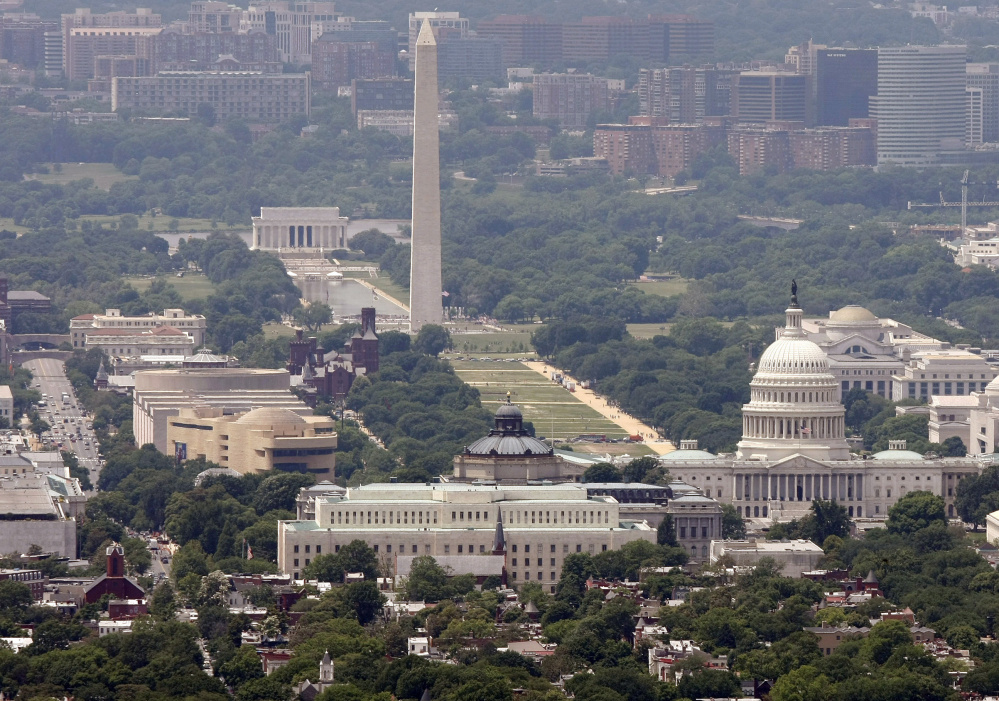Teresa Shook never considered herself much of an activist, or someone particularly versed in feminist theory. But when the results of the presidential election became clear, the grandmother and retired attorney in Hawaii turned to Facebook and asked: What if women marched on Washington around Inauguration Day en masse?
She asked her online friends how to create an event page, and then started one for the march she was hoping would happen.
By the time she went to bed, 40 women responded that they were in.
When she woke up, that number had exploded to 10,000.
Now, more than 100,000 people have registered their plans to attend the Women’s March on Washington in what is expected to be the largest demonstration linked to the inauguration of Donald Trump, and a focal point for activists on the left who have been energized in opposing his agenda.
A DEMAND FOR EQUAL RIGHTS
Planning for the Jan. 21 march got off to a rocky start. Controversy initially flared over the name of the march, and whether it was inclusive enough of minorities, particularly African-Americans, who have felt excluded from many mainstream feminist movements.
Organizers say plans are on track, after securing a permit from D.C. police to gather 200,000 people near the Capitol at Independence Avenue and Third Street SW on the morning after Inauguration Day. Exactly how big the march will be has yet to be determined, with organizers scrambling to pull together the rest of the necessary permits and raise the $1 million to $2 million necessary to pull off a march triggered by Shook’s Facebook venting.
The march has become a catch-all for a host of liberal causes, from immigrant rights to police killings of African-Americans. But at its heart is the demand for equal rights for women after an election that saw the defeat of Democrat Hillary Clinton, the first female presidential nominee of a major party.
“We plan to make a bold and clear statement to this country on the national and local level that we will not be silent and we will not let anyone roll back the rights we have fought and struggled to get,” said Tamika Mallory, a veteran organizer and gun-control advocate who is now one of the march’s main organizers.
More than 150,000 women and men have responded on the march’s Facebook page that they plan on attending. At least 1,000 buses are headed to Washington for the march through Rally, a website that organizes buses to protests. Dozens of groups, from Planned Parenthood to the antiwar CodePink, have signed on as partners.
Organizers insist the march is not anti-Trump, even as many of the groups that have latched on to it fiercely oppose his agenda.
“Donald Trump’s election has triggered a lot of women to be more involved than they ordinarily would have been, which is ironic, because a lot of us thought a Hillary presidency would motivate women,” said Dana Brown, executive director of the Pennsylvania Center for Women in Politics at Chatham University. “A lot of women seem to be saying, ‘This is my time. I’m not going to be silent anymore.”
SPOKESMAN DEFENDS TRUMP
Boris Epshteyn, spokesman for the Trump Inaugural Committee, defended the president-elect’s popularity among women in an interview on CNN. While Trump did not receive the majority of women’s votes he got an “overwhelming” number of them, Epshteyn said.
“We’re here to hear their concerns,” he said. “We welcome them to our side as well.”
That all this could grow out of a dashed-off post from her perch nearly 5,000 miles from Washington is amazing to Shook, who plans to be in Washington on Jan. 21.
“I guess in my heart of heart I wanted it to happen, but I didn’t really think it would’ve ever gone viral,” Shook said. “I don’t even know how to go viral.”
Unsure of how to proceed those initial few days, she said she enlisted the help of the first few women who messaged her to volunteer. But as the march grew in prominence, it got caught up in a broader conversation in liberal circles about race and leadership, with activists and others criticizing that initial planning group for its all-white racial makeup.Overwhelmed and under pressure, the original organizers eventually handed the reins to a diverse group of veteran female activists from New York.
Send questions/comments to the editors.


